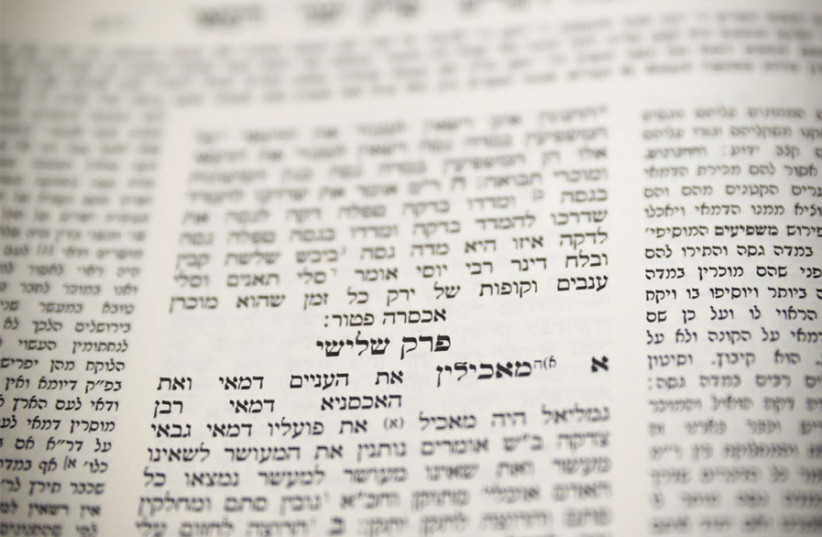This week’s Torah portion opens with the call, “You shall be holy!” This commandment obligates us to examine what holiness is. Is it a feeling? An experience?
The explanation for this commandment to be holy is, “for I, the Lord, your God, am holy.” If holiness is a divine trait, we must figure out how a person can become holy like God.
Many definitions have been given for the term “holy.” Among the most famous of those who researched this was Rudolf Otto, a German philosopher and theologian, who wrote a book called The Idea of the Holy where he tried to define the term and the manner in which holiness is experienced by man. In his opinion, holiness is a combination of two forces: fear of the sublime, expressed on a low level simply as fear, and on a higher level as a sense of glory and splendor, and the longing to get closer to the thing because of its wondrous charm.
There could be truth in such a definition, but it is hard to connect it with the commandment “You shall be holy!” How can a person not only be exposed to holiness, and not only yearn for it, but become holy himself?
THE KEY to grasping the concept of holiness in Judaism is the understanding that holiness is indeed a divine trait, and therefore cleaving to God is the way to attain holiness. In Rabbinic literature, we find several ways in which cleaving to God can be actualized and thus make a person holy.

In the Talmud, the sages wondered about man’s ability to cleave to God: “Is it possible to cleave to the Divine Presence? Isn’t it written: ‘For the Lord your God is a devouring fire’!”
God is compared to fire. Can someone cleave to fire without getting burned? How can a physical man be close to God?
And the sages answer: “Rather, this verse teaches that anyone who marries his daughter to a Torah scholar, and one who conducts business on behalf of Torah scholars, and one who utilizes his wealth to benefit Torah scholars with his property in some other way, the verse ascribes to him credit as though he were cleaving to the Divine Presence” (Ketubot 111).
Elsewhere, the sages ask a similar question and give a different answer: “Is it actually possible for a person to follow the Divine Presence?... Rather, the meaning is that one should follow the attributes of the Holy One, blessed be He. Just as He clothes the naked... so, too, should you clothe the naked. Just as the Holy One, blessed be He, visits the sick... so, too, should you visit the sick. Just as the Holy One, blessed be He, consoles mourners... so, too, should you console mourners. Just as the Holy One, blessed be He, buried the dead... so, too, should you bury the dead” (Sota 14).
The sages of the midrash propose a third way of cleaving to God: “Is it possible for flesh and blood to go up to the Heavens and cling to the Divine Presence?... Rather, the Holy One, blessed be He, from the very beginning of the creation of the world, only occupied Himself with plantation first.... You also, when you enter into the land, only occupy yourselves with plantation first” (Leviticus Rabbah 25).
We have, therefore, three means of cleaving to God: connection to the Torah, acts of loving-kindness, and being occupied with developing the world. These are different expressions of divine holiness. The Torah is the word of God to humanity, the manner in which man is exposed to the eternal values of the Creator; acts of loving-kindness, thinking of others and assisting the weak are ways of walking the path of God; and developing the world, what the sages of the midrash demonstrate through the example of planting fruit trees, makes man a partner of God in the continued existence of the world.
It is therefore no surprise that under the title of “You shall be holy” in this week’s parasha, we find a very varied list of commandments. Indeed, there are many ways to attain holiness. In every commandment that one fulfills, one can cleave to God and thus become holy.
In Judaism, holiness is not an experience; it is an action – says Jewish scholar Steven Kepnes. A person can be holy when he follows God’s ways, connects to the Torah, performs acts of loving-kindness for others, and acts on behalf of the world’s continued existence. ■
The writer is rabbi of the Western Wall and holy sites.
